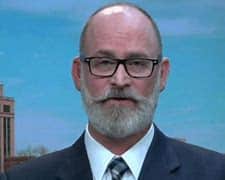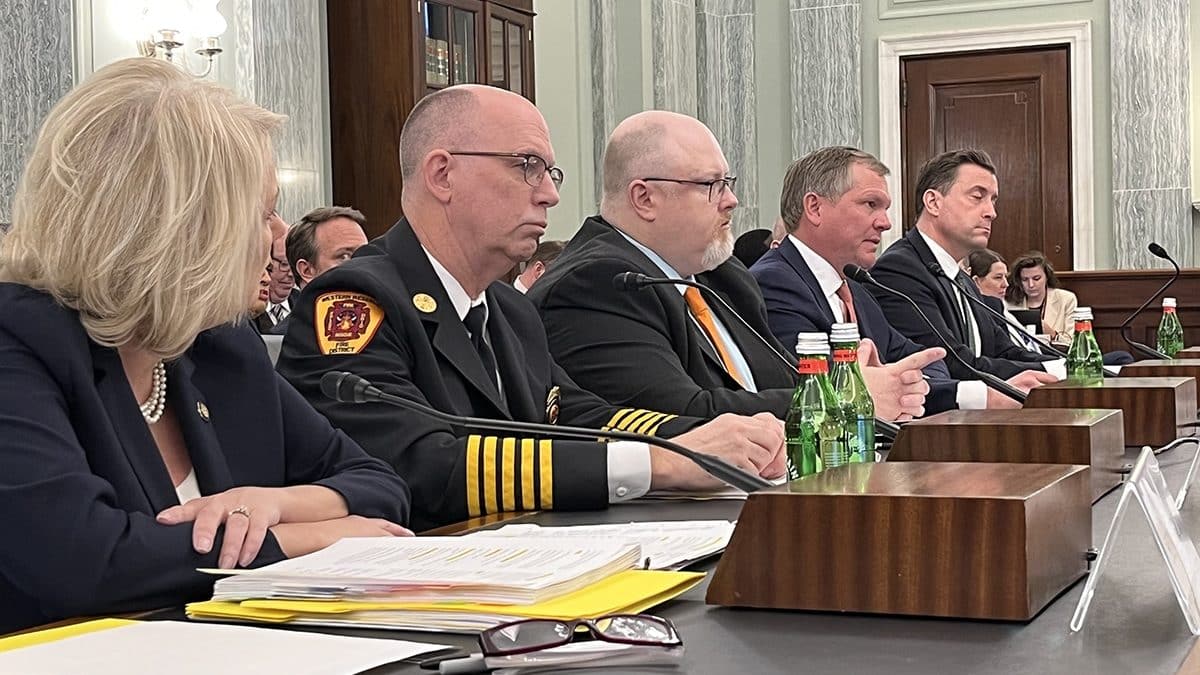The RSA, which was born from the East Palestine derailment and contains two-person crew language, cleared its first major hurdle today when it passed through the Senate’s Commerce, Science, and Transportation Committee. The bill’s passage through committee was not without controversy and fireworks, with a debate between two Republican Senators during a discussion of amendments. However, at the end of the meeting, the RSA was passed and now moves on to the Senate.
As a rule, freshman legislators on every level are expected to spend their first year, if not their first term, being seen and not heard. There is a tremendous learning curve, and most are happy to take in all of the information and calibrate themselves before becoming vocal, especially when taking on the standard bearers of their own political parties.
Unlike most other Senators, JD Vance (R-Ohio) had the luxury of a learning curve taken away from him by the derailment in East Palestine, Ohio. Like a first-round draft-pick quarterback who has to put down the clipboard and step into the game before planned, Vance was thrown into the middle of the action.
Today – May 10, 2023 – Vance helped usher the Rail Safety Act of 2023 to a bipartisan 16-11 win in the Senate’s Commerce, Science, and Transportation Committee.
Vance’s opening statement in support of the bill came directly on the heels of longtime Senator Ted Cruz (R-Texas) pulling his support for the Vance/Brown Bill. In the face of this adversity, Vance came out swinging. Among other holes he poked in Cruz’s argument against the bill, he said: “We cannot on the one hand acknowledge that Ohio taxpayers and Ohio citizens are bearing the cost of this accident and on the other hand say that it’s ridiculous to require the railroad industry to do a little bit more on safety. They should be incurring some additional costs so that another East Palestine doesn’t happen again.”
In a direct response to Cruz’s damnation of his bill as being too costly for railroads to be expected to pay for, Vance added: “Yes, it may make rail transportation a little bit more expensive. But it’s going to make rail transportation a little more expensive in the service of safety. Because let’s be honest. We have allowed the rail industry to socialize the risk of their business while privatizing the rewards. The people of East Palestine are going to deal with the cost of what Norfolk Southern did for the next generation.”
When the hearing was opened for Senators to offer amendments to the bill, another institution of the Senate and Vance’s Republican party, John Thune (R-South Dakota), offered an amendment he claimed would alleviate the burden of Class II and Class III railroads. In his remarks, he more than suggested that other legislators aren’t in touch with rural/agricultural economies. In the face of the Thune amendment, Vance responded, “There are a number of agricultural communities small and big in the state of Ohio and a lot in East Palestine. They bear the cost when railways set off chemical bombs in their community – which is exactly what happened a couple of months ago. Those costs have been socialized onto Ohio and American taxpayers.”
Following Vance’s comments, the Thune amendment was defeated. Shortly after that success, Vance and the Railway Safety Act of 2023 scored a huge win for rail labor with a 16-11 passage of the bill (without the rejected amendments proposed by Cruz and Thune). For his part in the day’s proceedings, the newcomer received accolades not often heard in the halls of the United States Senate.
Senator Eric Schmitt (R-Mo.) thanked Vance for his leadership and said that he was happy to lend his support to the legislation. Both Senators Amy Klobuchar (D-Minn.) and Committee Chair Maria Cantwell (D-Wash.) made a point to highlight Vance’s acumen. Chair Cantwell said of Vance that, “I have to say, sir, you’ve come to the Senate and you’ve hit the ground running. And I appreciate that because you are responding to a crisis that happened in your state and you’re responding on behalf of your citizens so that this doesn’t happen again.”
It goes without saying that SMART Transportation Division is encouraged by the bipartisan effort it took to get the Rail Safety Act of 2023 through the Senate committee, and we hope the sentiment continues as the bill now proceeds to the Senate floor and then onto the House.
Rail safety is not for sale. America’s rail workers need legislation to reverse the harmful trajectory of the industry and to protect the communities in which they operate. We thank Senators Vance and Schmitt for their support, as well as every Democratic Senator on the Senate Commerce Committee for fighting to protect our members.




